Leading Zero Emissions with Japan's First Marine Hydrogen Fuel Cell System
2024/4/1
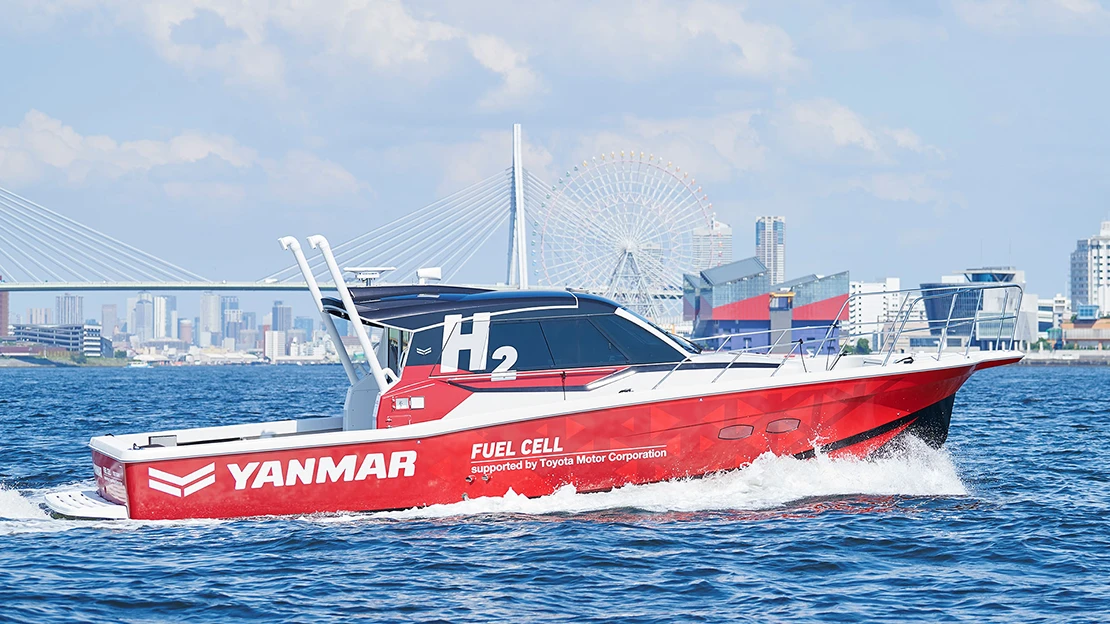
At Yanmar Group, we have successfully developed Japan's first hydrogen fuel cell system for use in ships, as part of our transition towards a decarbonized society. We spoke with Mr. Hiraiwa, a member of the Yanmar Power Technology Co., Ltd., Large Power Product Business System Engineering Division about the mechanism, challenges during the development process, and prospects.
Profile

- Takuya Hiraiwa
- Yanmar Power Technology Co., Ltd.,
Large Power Product Business System Engineering Division about the mechanism
Making Ships Environmental and Human-friendly with Hydrogen as Next-generation Energy
Amidst global efforts towards decarbonization, the maritime sector has also been making strides. In 2018, the International Maritime Organization (IMO) adopted a GHG reduction strategy, aiming for total emission reductions. One area that has garnered attention worldwide is hydrogen fuel cell systems for ships. During power generation, hydrogen fuel cell systems only emit water and heat, without releasing GHG such as carbon dioxide or atmospheric pollutants like nitrogen oxides. However, there were no precedents for the practical implementation of hydrogen fuel cell systems for ships in Japan. Yanmar has been conducting demonstration tests through entrusted research from the Ministry of Land, Infrastructure, Transport and Tourism, and participation in subsidized projects by the Ministry of the Environment. As a result, in 2023, Yanmar successfully shipped hydrogen fuel cell systems for passenger ships, marking a new milestone in Japan's maritime history.
The benefits of marine hydrogen fuel cell systems extend beyond the environmental aspect. "Not using fuel oil means that the system is odorless, which is a significant advantage for ships," says Mr. Hiraiwa. In passenger ships, the smell of fuel oil is often cited as a cause of seasickness. By using hydrogen as fuel, this odor issue is resolved. Additionally, since there is no need for an engine, vibrations and noise are significantly reduced, leading to improved comfort.
Two Main Obstacles Hindering Practical Implementation are Cost and Regulations
Mr. Hiraiwa explains that this project was no easy task. The first obstacle encountered was the cost aspect. To keep costs down, they decided to modify hydrogen fuel cells already in use for automobiles for maritime use. However, unlike automobiles, meeting explosion-proof standards to prevent explosions is crucial for marine applications. Naturally, explosion-proofing increases costs. The solution to this challenge came from Yanmar's accumulated expertise. With years of experience in gas engine development, Yanmar was able to leverage its expertise to reduce costs and compact the system for maritime use, ultimately achieving the completion of the hydrogen fuel cell system for ships.
In addition to technical challenges, another significant obstacle was the lack of regulations regarding hydrogen fuel cell systems for maritime use in Japan. Therefore, it was necessary to start from scratch with rulemaking in collaboration with the Ministry of Land, Infrastructure, Transport and Tourism and ClassNK. "While it would have been easier if there were existing regulations to follow, the fact that this was a pioneering effort in Japan meant that we were always navigating in uncharted territory," reflects Mr. Hiraiwa on the challenges of being the first in Japan.
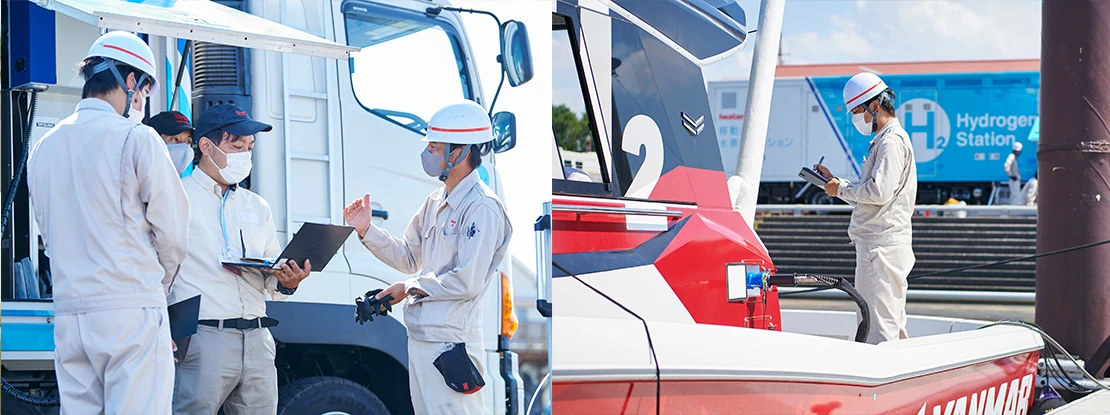
Accelerating Overseas Expansion to Propel Yanmar to the Next Stage
Yanmar's hydrogen fuel cell system for ships has attracted significant interest not only domestically but also from overseas countries such as Norway, the Netherlands, and the United Kingdom. In Europe and the United States, there are more advanced regulations aimed at reducing emissions of nitrogen oxides and GHGs compared to Japan. There are not many cases in the world where engine manufacturers provide fuel cell systems, so there are great expectations from overseas for this initiative.
Yanmar has traditionally provided engines as power sources. However, by developing hydrogen fuel cell systems, we have achieved electrification of power sources and can now offer not only power sources but also entire power units. “I believe this project has brought us closer to being a marine system integrator who not only sells products but also develops and manages systems tailored to our customer's requests,” says Mr. Hiraiwa, emphasizing that this project represents a significant step forward for Yanmar.
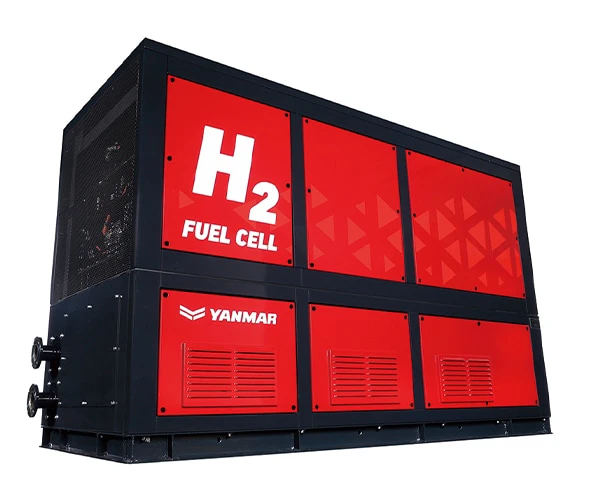
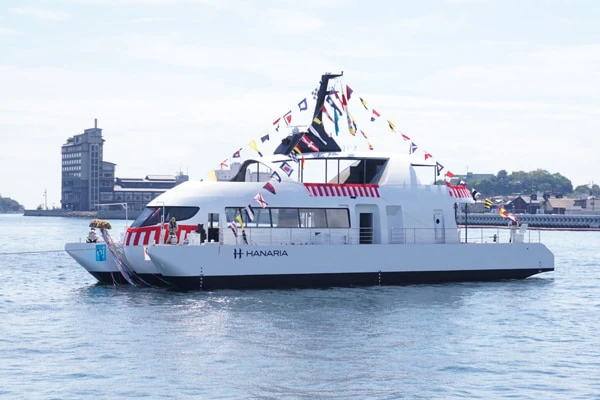

 Agriculture Equipment
Agriculture Equipment Compact Equipment
Compact Equipment Utility Task Vehicles
Utility Task Vehicles Industrial Engines
Industrial Engines Recreational Marine
Recreational Marine Marine Commercial
Marine Commercial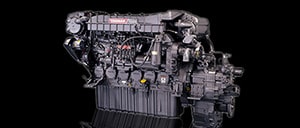 Propulsion Engines (High Speed)
Propulsion Engines (High Speed)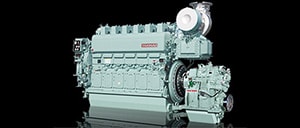 Propulsion Engines (Medium Speed)
Propulsion Engines (Medium Speed)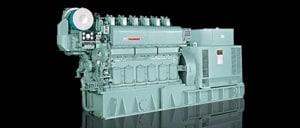 Auxiliary Engines
Auxiliary Engines SCR System
SCR System Dual Fuel Engine
Dual Fuel Engine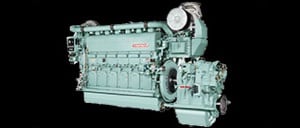 Two-stage Turbocharging System
Two-stage Turbocharging System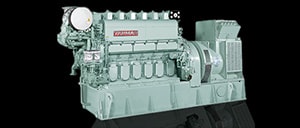 Electric Propulsion System
Electric Propulsion System Net Cleaning Robot
Net Cleaning Robot Energy Systems
Energy Systems Compact Power Products
Compact Power Products YANMAR RePower
YANMAR RePower Genuine Parts
Genuine Parts